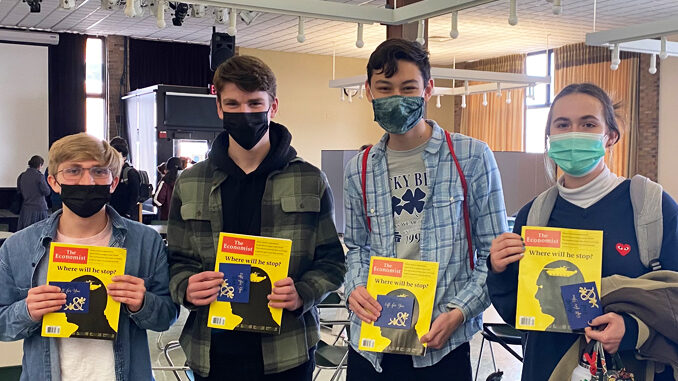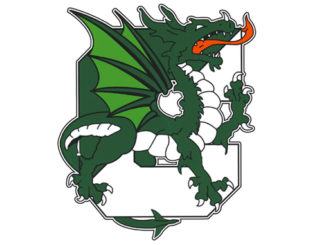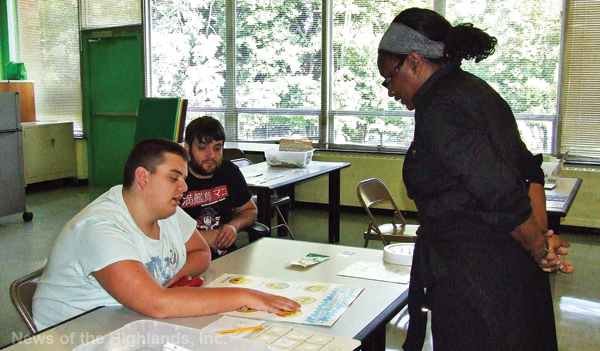
But miss cutoff for nationals in D.C.
For the second year in a row, one of Cornwall’s Foreign Affairs teams placed second, against 13 other schools in the Mid-Hudson Region at the regional competition held recently at Dutchess Community College. Unlike last year, however, the team did not qualify to move on to the national competition held in Washington, D.C.
Due to the COVID-19 pandemic, the top two teams to place in regionals went on to compete virtually in nationals. This year, Academic World Quest went back to its original format with nationals held in-person in the nation’s capital.
The team of Thomas Napolitano, Matthieu Schaal, Giorgio Aversa, and Taylor Thompson took second place, losing to Mount Academy. Aneeka Phadnis, Militza Sanchez, Blaise Scileppi, and Azlan Johnson competed on Cornwall’s second team.
Advisor Kelly Finn said there was no disappointment about not advancing to nationals, because last year’s competitors all graduated.
“If they had been part of that winning team it would have been a little frustrating for them, but since this is the first time they placed second, they were just happy with that place,” said Finn.
This year’s teams were made up of sophomores, juniors, and seniors, so it’s possible for some of the students to make another run next year.
Sponsored by the World Affairs Councils of America, the competition offers teams a list of topics on which they will be quizzed. Students prepared by using the study guide materials provided and by researching topics. The questions asked during competition are based on the articles provided by the organization. Each team member chooses a topic and then becomes an expert on that subject. The competition consists of 10 rounds of 10 multiple choice questions.
Students met in September, divided the topics, and set forth extensive research efforts. The teams met weekly to review what they had learned about their topics. Some of this year’s subjects included: Climate change, Afghanistan, international labor, COVID-19, technology, global supply chains, Persian Gulf security, Brexit and the EU, the Arctic, China in Africa, the two Koreas, the role of the World Health Organization, end of globalization, digital currency, and current events.
During the competition, the presenter reads the questions and offers four possible answers. Teams have 30 seconds to discuss before picking their answer and moving on to the next question. At the end of each round, the answers are collected and the subsequent rounds begin. It takes about four hours to complete each round, but unfortunately teams don’t know how well they’re doing compared to the others until all rounds are completed and scores tabulated. Teams are able to track their own progress based on the number of correct answers.
“I’m just so proud of them,” Finn said. “I am in awe of what it takes to prepare for this competition. All the preparation is student driven. I’m impressed by the breadth of knowledge these kids come to the table with on the day of the competition.”



